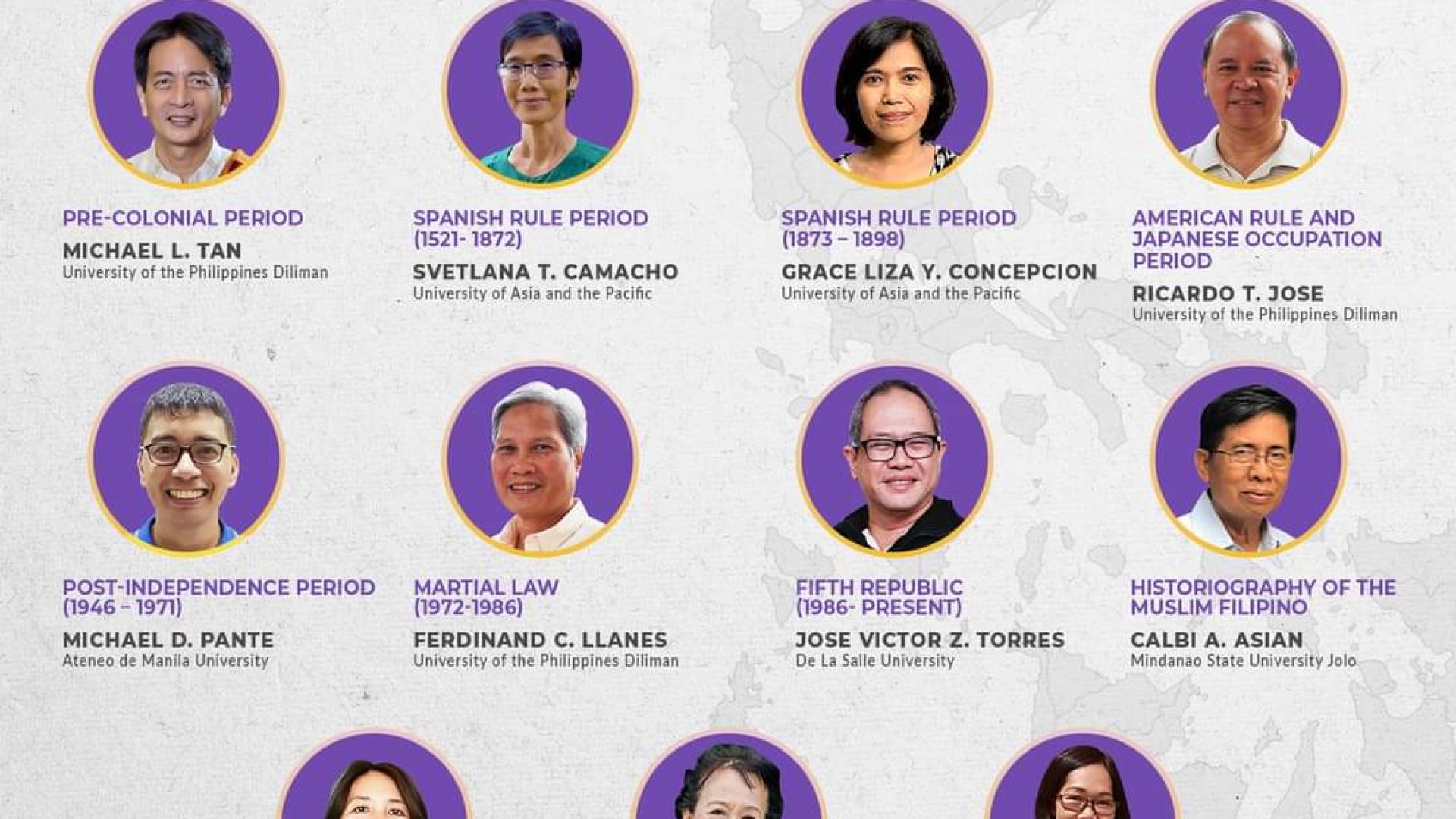
Rex Education, in partnership with the Philippine Social Science Council (PSSC), the Philippine National Historical Society (PNHS), and the Philippine Historical Association (PHA), formally introduced the fellows of its “Saliksik Kasaysayan: A Fellowship Program to Develop a Compendium of Philippine History” program last February 17, 2023.
“Saliksik Kasaysayan” is a 10-month program that aims to take stock of and secure articles, materials, and references on different periods in Philippine history. The main proponents of the program are selected fellows knowledgeable in the different time periods of Philippine history, ensuring the accuracy and credibility of each learning resource.
The program was launched last September 2022, where REX and its partner organizations reaffirmed the importance of curating materials that would be reliable references for generations of academics and students.
“This fellowship program brings together the academe, civil society, and private sector toward the common goal of serving Filipino learners,” REX Chief Executive Officer Don Timothy Buhain said during the event. “REX believes that an important next step in enabling our learners, teachers, and communities entails looking back at where we all came from.”
The 11 academics were awarded a generous grant to work on period or subject areas in Philippine history ranging from the pre-colonial period to the Fifth Republic and with special volumes on Muslim Mindanao and Indigenous Peoples Community.
During the program launch, Excelsa Tongson, DSD, Chairperson of the PSSC, delivered the opening remarks, followed by a message from Don Timothy Buhain, CEO of Rex Education. Lourdes M. Portus, PhD, Executive Director of the PSSC, introduced the fellowship program, and Ma. Luisa Camagay, PhD, President of the PHA, had the privilege of introducing the fellows.
Each fellow was given a chance to speak about the respective periods of their research. Michael L. Tan, PhD will be looking into the Pre-colonial period. Svetlana T. Camacho, PhD is set to investigate the Spanish rule period during the years of 1521 to 1872, while Grace Liza Y. Concepcion, PhD will study the Spanish rule during 1873 to 1898.
Ricardo T. Jose, PhD will cover the American rule and Japanese occupation period. Ferdinand C. Llanes, PhD will be studying the Martial Law era of 1972 to 1986. Jose Victor Z. Torres, PhD has committed to being the fellow for the Fifth Republic, encompassing the years of 1986 to present times. Meanwhile, Calbi A. Asain, PhD will be doing research on the Historiography of the Muslim Filipino.
Three fellows will also be tackling special volumes on the indigenous peoples communities in the three major island groups of the Philippines. Mary Jane B. Rodriguez, PhD will be covering Luzon, Alicia P. Magos, PhD will be studying Visayas, and Cecilia B. Tangian, PhD will be tackling Mindanao.
To end the program, Bernardita Churchill, PhD, President of the PNHS, delivered her closing remarks virtually from the United States.
History as a means of moving forward
As per DepEd Order 20, Philippine history was removed from the high school curriculum to pave the way for the K to 12 program. Instead, the topic was integrated into the Araling Panlipunan (AP) curriculum at the 5th and 6th grade levels. While the revised K-12 program has allotted discussions for Asian Studies and World History topics in Social Science classes, there is no dedicated subject for Philippine history for grades 7 to 10.
A 2019 pedagogy review conducted by the FEU Public Policy Center (FPPC) asserted that the goal of AP education should also be the development of students’ critical thinking skills apart from examination, interpretation, research, and communication skills, among others in DepEd’s goals. In their review, FPPC concluded that existing textbooks do not give a complete view of Philippine history.
There has been a consequent call to arms for academics, historians, and scholars to be better engaged in the production of materials regarding Philippine history, whether through co-authorship or fact checking. The end goal would be to ensure textbooks with historical accuracy and sound pedagogy, which is achievable through the effective use of primary sources.
REX, PSSC, PNHS, and PHA believe in the importance of Philippine history in making whole the learning experiences of every Filipino learner.
Through “Saliksik Kasaysayan,” the program fellows embark on their journey of gathering and scrutinizing resources on Philippine history, with the ultimate goal of paving the way for Filipino learners who can understand and appreciate the nation’s past from credible materials and learn from it as they move forward.





